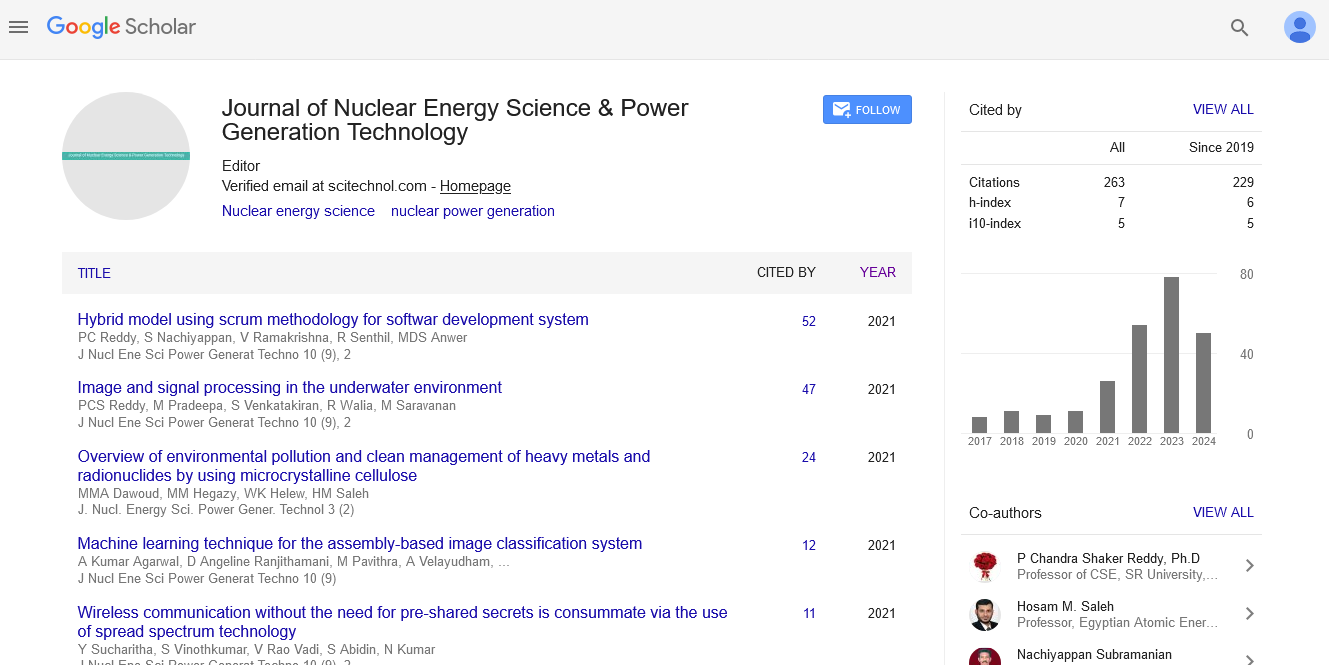Analyzing the potential of bamboo as bioenergy feedstock in community development and environmental sustainability
Kamesh Salam and Sandeep Ramteke
South Asia Bamboo Foundation, India
Rural Livelihood Development Society, India
: J Nucl Ene Sci Power Generat Technol
Abstract
The present study analyzed the potential of bamboo as bio-energy feedstock. Bamboo a grass family is a strategic resource growing across the world, which can be processed in various ways to produce different energy products, to be used as substitutions for existing fossil fuel products. It has better fuel characteristics than most biomass feed stocks and suitable for both thermal and biochemical pathways. Securing reliable and cost effective supplies of biomass feedstock, produced in a sustainable manner over the operating life of the plant, is the biggest challenge. High level of participation by communities and women participation, to build a sense of ownership in, and commitment to, the industry can ensure the supply on continuous basis. Bamboo feedstock harvesting, developing collection and distribution value chain including regeneration of quality bamboo stock, can create much needed employment opportunities in rural areas. Recognizing local actors as key stakeholders and promoting their inclusion in the management of feedstock can greatly contribute to improve local livelihoods and rural development as well as ensuring conservation. Bamboo characteristics of high biomass productivity, self-regeneration and tolerance to poor soils makes it most suitable energy crop in terms of environmental sustainability. Bamboo has a lifespan of 40-60 years; if it is not utilized in the productive manner, then existing huge productive resource can get waste.
Biography
E-mail: kameshsalam@gmail.com
 Spanish
Spanish  Chinese
Chinese  Russian
Russian  German
German  French
French  Japanese
Japanese  Portuguese
Portuguese  Hindi
Hindi 

